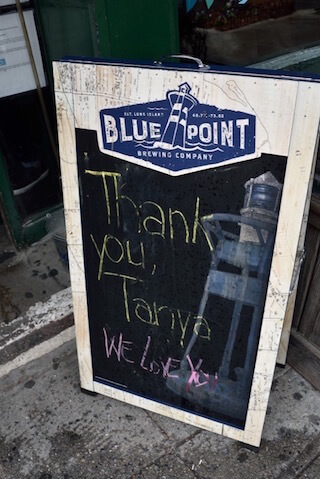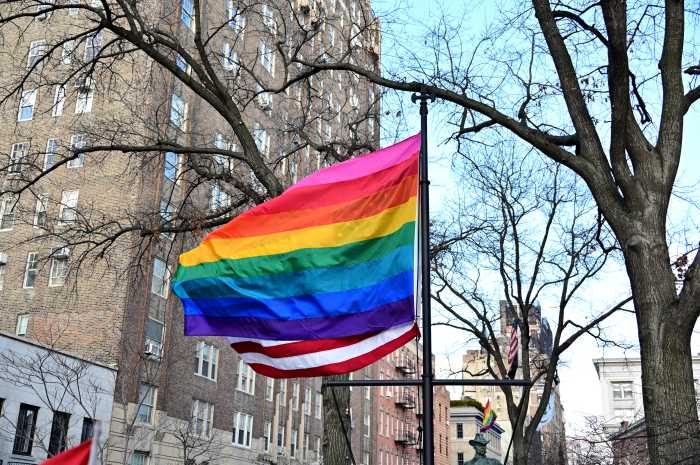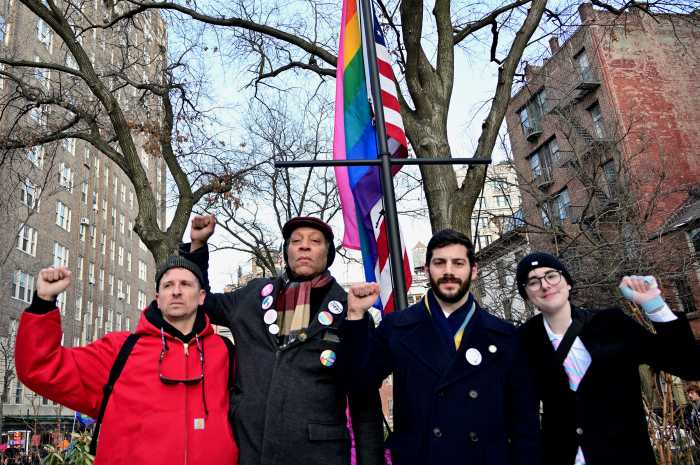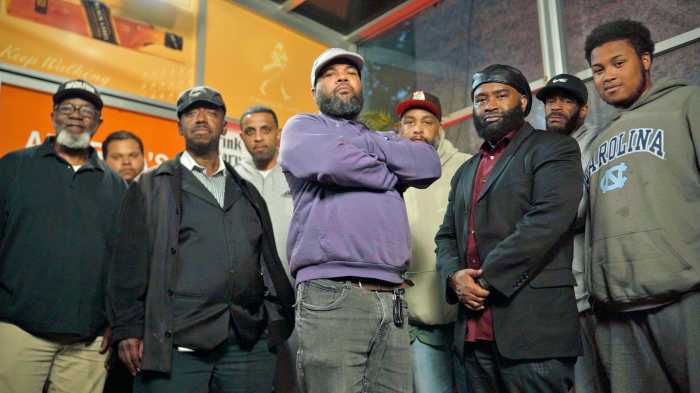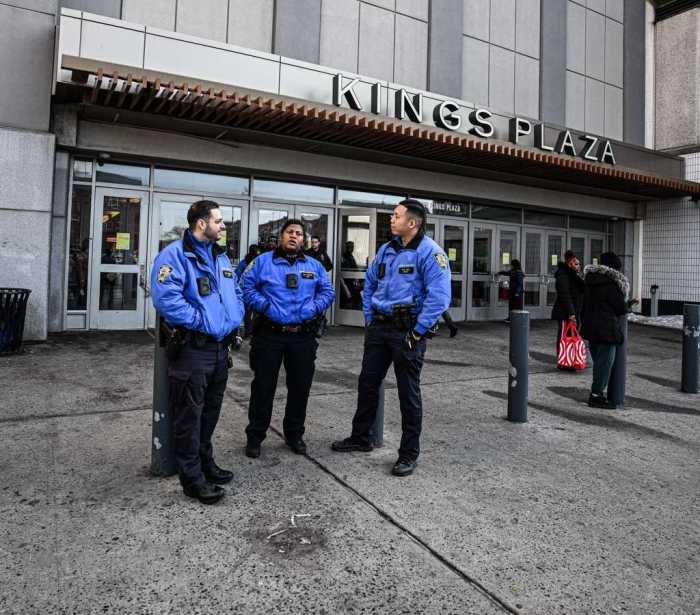Tanya Saunders nuzzles one of her beloved animals. | COURTESY OF BETTY BYTHEWAY
Tanya Saunders, a child refugee from Nazi Germany who owned a West Village bar since 1987, the last 24 years under the name Cubbyhole, died on April 29 at the age of 82. The cause of death, said Lisa Menichino, Saunders’ close friend who worked with her for the past 18 years, was heart failure, after roughly a year of poor health.
Though the Cubbyhole was widely thought of as a lesbian bar, both Saunders and Menichino preferred to dub it a “neighborhood fusion bar.”
“Exclusivity bored her,” Menichino told Gay City News. “She wanted a diversity of people. That’s much more interesting.”
Lesbian barkeep had the “ability to make everyone feel welcome”
Tanya Saunders, 1935-2018. | COURTESY OF BETTY BYTHEWAY
In a 2004 profile on the bar in The Villager, Gay City News’ sister publication, Saunders herself explained, “When I used to go out, I’d always catch a lot of attitude at bars and clubs. I always wanted to open a bar and I thought when I did, I’d make sure it was a friendly, casual place where people would feel comfortable. I wanted a real mix of people. I live my life that way, and I wanted it in my bar. We’ve got men and women, gay and straight here.”
The Cubbyhole was known for its colorful, even extravagant DIY decorations, and that may have been due, in part, to what Menichino described as Saunders’ “superstitions.”
“We always had to save things that were red and green,” she recalled. “Tanya considered them lucky.”
New York magazine once wrote that the lively décor made it look as though Saunders had “raided a thrift shop the day after Mardi Gras,” while The Villager wrote that “the thatch of Japanese lanterns, model airplanes, oversize goldfish (which match the covers on the bar stools), and at least one lobster suspended from the ceiling [make] the place look more like some sort of fantastic forest.”
Saunders first got into the bar business — after a career in advertising — in 1987 by opening up DT’s Fat Cat at 281 West 12th Street at the corner of West Fourth Street. When her business partnership in that bar with another woman ended in 1994, Saunders secured the name Cubbyhole from the owner of another lesbian bar that once had that name. In the 24 years since, the venue has nightly been a hive of activity, with crowds often spilling out onto the corner on warm evenings.
Its ability to draw mixed crowds was testified to by no less than Andy Cohen, who in explaining why he loves New York in a 2012 issue of TimeOut NY, wrote of Cubbyhole, “It’s my go-to place for drinks after ‘Watch What Happens Live.’ It’s not only in my neighborhood, but you can also bring everybody there, because everybody wants to go to a lesbian bar. Straight guys want to, straight girls want to, and gay guys are great with it. You can check every box, and it’s just always fun in there. It’s fiesta central in a neighborhood bar.”
Despite the diversity of its crowds, though, Cubbyhole has always held a special place in the hearts of New York lesbians, and has often played host to benefits and fundraisers for community organizations.
The Cubbyhole at the corner of West 12th and West Fourth Streets. | DONNA ACETO
Born on May 13, 1935 in Wiesbaden, Germany, Saunders and her widowed Jewish mother escaped the Nazi regime in 1939 in what she said was the last ship of Jewish exiles admitted into the US before this nation began turning them away. Raised in Forest Hills, Queens, Saunders later lived for about a decade in Brooklyn before settling in the West Village in the early ‘80s.
Menichino said that Saunders’ advertising career was successful due to her “creative, eclectic” style.
A sign outside Cubbyhole says thanks to Tanya Saunders, its owner for the past 24 years. | DONNA ACETO
She was also a big animal lover, donating money to animal welfare groups, raising dogs and cats while “adopting” pigs and horses by paying for their care in their refuges, and even worrying about the pigeons and rats, Menichino said. Property Saunders owned in the Hamptons had feral cats hanging about, and when she rented it out she made it a lease stipulation that tenants provide care to the wild ones.
“She was just the most amazing woman,” Menichino said of Saunders. “She forgave everyone and never judged. Unless you were cruel to animals.”
Betty Bytheway, Saunders’ friend of more than 20 years, recalled, “She had the ability of making everyone feel welcome. She was there for everybody.”
At her May 1 service at Riverside Memorial Chapel on the Upper West Side, some friends worried about what would come next for Cubbyhole, after 24 years of loving care by Saunders.
In fact, she left the bar to Menichino, whom Bytheway said was akin to a daughter to Saunders.
And Menichino vows to carry on the Cubbyhole tradition, daily until 4 a.m. on that curious corner of the Village where West 12th Street somehow manages to intersect with West Fourth Street.

